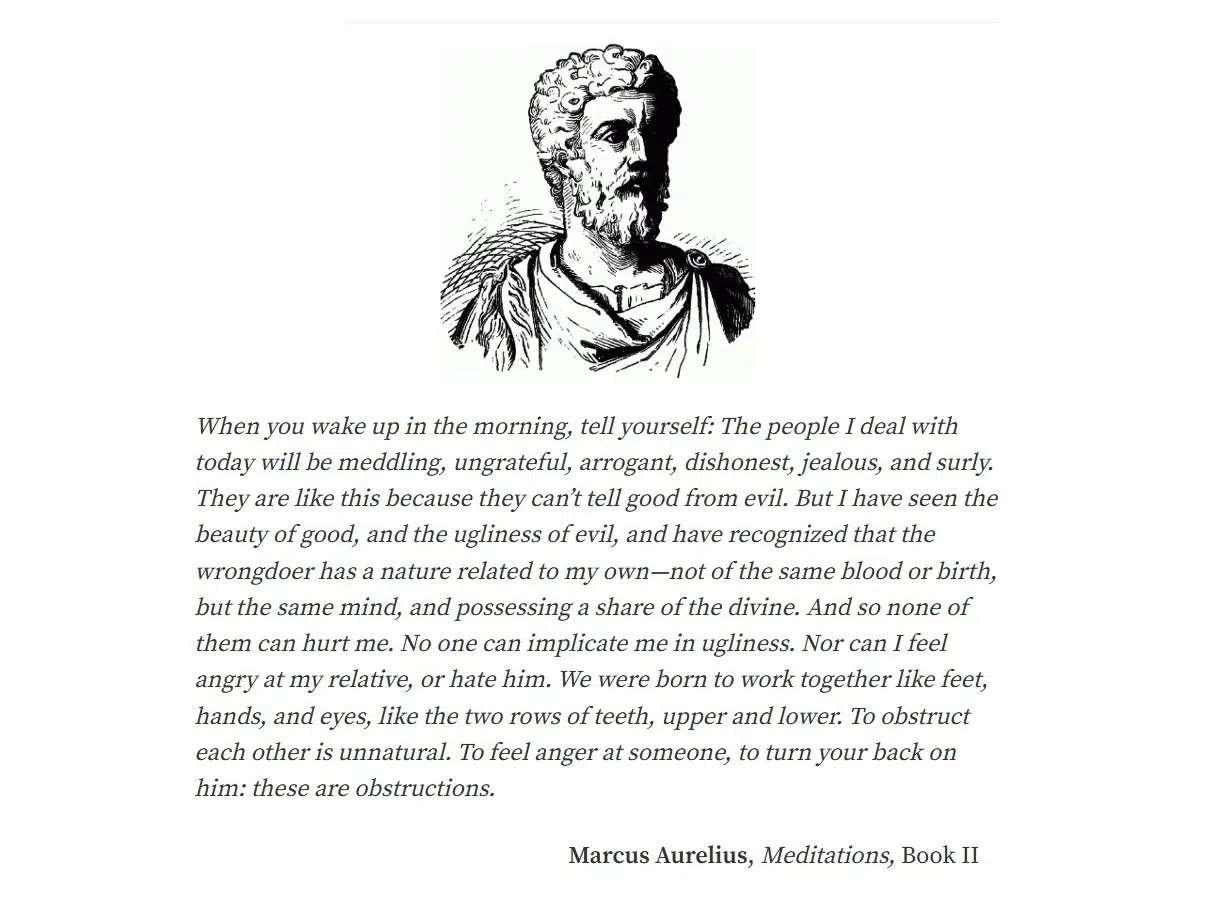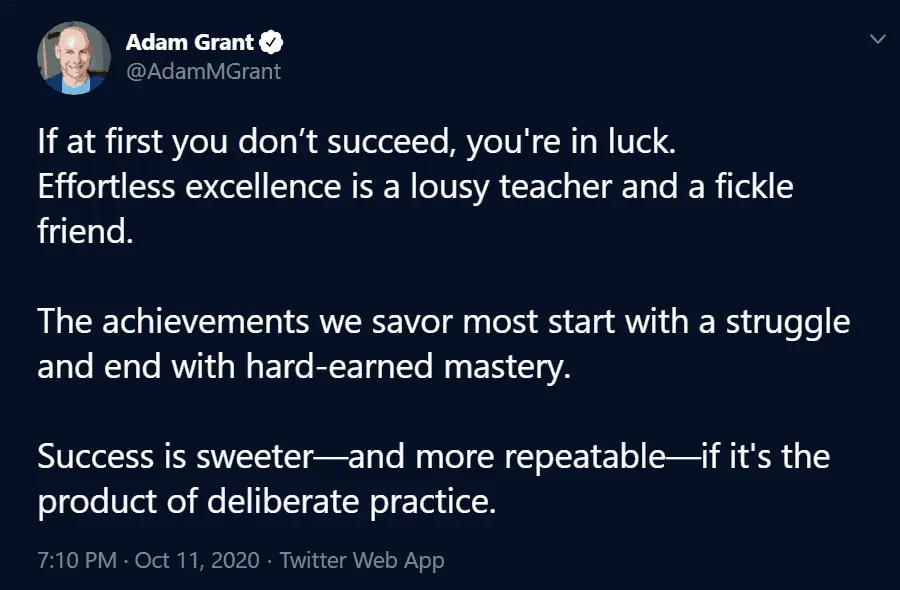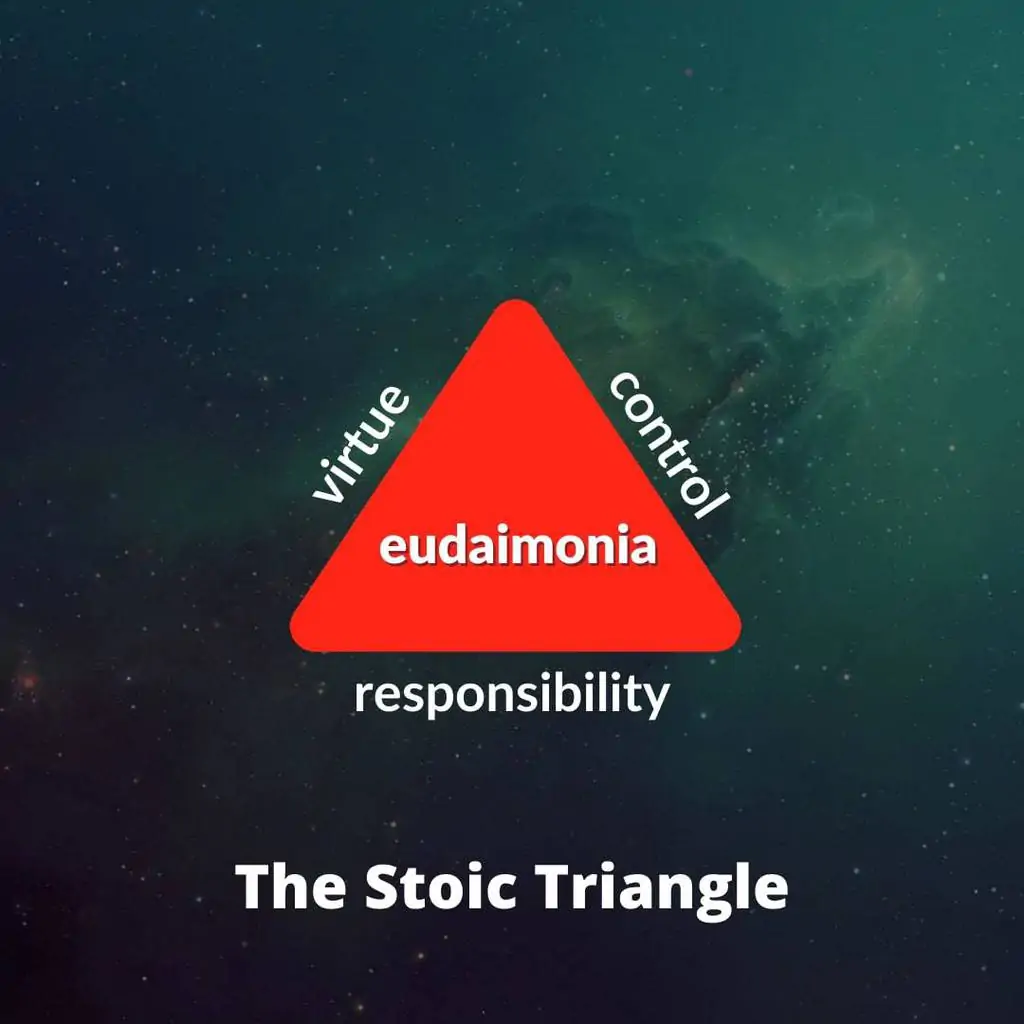Today's Saturday • 10 mins read
Stoicism can help you live well and become the best version of yourself, through the good times and the tough times. Learn it now, for time on earth is limited.
By nature, we seek happiness through happy memories. But with life getting harder every day, we don’t know if we’ll have any good memories left when we’re old.
Perhaps so, many of us are turning to Stoicism, the ancient Greco-Roman philosophy that still makes a lot of sense in today’s turbulent world.
So, what could be a few simple ways to start as a beginner Stoic?
What’s Stoicism, To A Beginner
Stoicism is a Hellenistic school of philosophy from the 3rd century BCE. The word Stoicism got its name from the Stoa Poikile or the painted colonnade in Athens, the place where Zeno of Citium lectured.
From Greece, Stoicism found its way to Rome in the 2nd century BCE, where it flourished and found its four most influential proponents — Cicero, Seneca, Epictetus, and Marcus Aurelius.
One Stoic Principle To Live By
As a beginner, start with this one pivotal Stoic belief:
Things happen to us, and we can only choose how to react to them, whether they are good or bad.
You can never have a world of perfect situations and perfect fellow humans. The world will always stay unpredictable. So why lose your peace over trying to control the actions of others or the outside world?
Marcus Aurelius, the last of the five good Roman Emperors, said it well:
When you wake up in the morning, tell yourself: The people I deal with today will be meddling, ungrateful, arrogant, dishonest, jealous, and surly. They are like this because they can’t tell good from evil. But I have seen the beauty of good, and the ugliness of evil, and … so none of them can hurt me. No one can implicate me in ugliness. Nor can I feel angry at my relative, or hate him.
— Marcus Aurelius, Meditations, 2.1
That passage is a great reminder to take the high ground when meeting people of dubious standards. Echo his mindset, remind yourself what Marcus did.

Stoicism For Beginners: 7 Quick Lessons In Stoic Beliefs
The Stoics believe the cosmos is guided by reason, which helps us think clearly and make good choices. By connecting with this cosmic logic, we can become more self-controlled and resilient, handle negative feelings better, and live a more balanced life.

Here are 7 quick lessons for a beginner Stoic on how to live a happy, good life:
1. The Mind Is One’s Real Power
The Stoics believed that our minds were the only power we could always rely on. They believed that our minds’ ability to think and reason is what makes life worth living.
When we think with reason, we can better control our thoughts, desires, actions, and emotions. This helps us stay calm and make good choices, even when things get tough.
As Marcus Aurelius wisely stated, “You have power over your mind, not outside events. Realize this, and you’ll find strength.”
The Stoic path to peace and happiness is to focus on what’s in our mind: our thoughts and decisions. This allows us to face whatever life throws at us without worrying about things we cannot change.
One thing: While Stoics focus on what they can control, this focus is not a retreat from the world. Instead, it is a way to make sure their worldly actions are rooted in reason and virtue. Stoics always fulfilled their duties and roles in society.
2. Time Is A Precious Resource
Nobody has unlimited time in this world. But most of us just let days and months pass by, doomscrolling the social media.
People keep doing the same things for years without any joy. Because if they don’t, they’re afraid that others will ridicule them for not having a stable career.
We’re tight-fisted with property and money, yet think too little of wasting time, the one thing about which we should all be the toughest misers. — Seneca
But our time on this earth is scarce. We should drop that “living-for-what-others-will-think” mindset. And start taking little risks and going for novel and unfamiliar experiences in life.
So, guard your time well; it is one thing you cannot replace. Do not say yes to commitments you cannot sustain; do not let people and apps distract you; do not keep busy for the sake of looking busy.
3. Be Present In The Moment
Have you ever noticed that obsessing over the past sends us into overthinking loops, and that worrying too much about the future causes us anxiety?
Stoics practiced being in the present moment, focusing on the task at hand, fully experiencing the now. This is the practice of mindfulness.
Mindful people cherish and flow in each moment as it happens, without the weight of past regrets or future anxieties. And that helps them be happier than most others.
Stoics practiced mindfulness to enjoy the little things in life, be thankful for their blessings, and savor the pleasures of relationships. They also used it to respond to challenges with mental clarity and calmness.
This is how you can practice Stoic mindfulness, as Donald J. Robertson suggests in his book Stoicism and the Art of Happiness:
- Throughout the day, practice bringing your attention back to the present moment, rather than allowing it to wander off into daydreams, rumination about the past, or worry about the future.
- If you have to think about something else, that’s okay, but try to keep one eye on the present moment, by noticing how you’re using your body and mind – try to be aware of each second that passes.
- If it helps, imagine that you’re seeing the world for the first time, or that this is your last day of life, and concentrate your attention on how you actually think and act, from moment to moment.
- Remind yourself that the past and future are ‘indifferent’ to you and that the supreme good, and eudaimonia, can only exist within you, right now, in the present moment.
For more information, read this 7-Step Beginner Guide To Mindfulness Meditation.
4. Show Gratefulness For What Is
Gratitude is important for a fulfilling life. Taking the time to appreciate what we have can make us much happier.
The Stoics understood this and made gratitude a part of their daily practice. They expressed thankfulness for the good things in their lives, even during the challenging times. That made them strong enough to handle the harsh realities of life.
“Our lives are given to us, therefore our default state should be gratitude.” — Robert Emmons, the world’s leading scientific expert on gratitude
Practicing gratitude raises our happiness by making us more aware of the positive aspects of life and discovering joy in the abundance that already exists.
This 8-month-long study found that expressing gratitude boosts happiness, especially when participants know about, endorse, and commit to the intervention.
5. Remember The Original Reasons
When we are struggling to achieve something, it is so important to remember why we are going for it in the first place. The motive to have a goal and want to work towards it is more important than the goal itself.
But sometimes, we tend to forget the charm of the journey we go through once we achieve the goal. Remembering the reasons behind our wishes and goals is crucial to our happiness.
It helps us identify the experiences that make us feel good so that when things turn bad, we can find solutions to our misery.
Stoics firmly believe humans cannot, and therefore should not, try to control events outside themselves. By doing so, one can only destroy their peace of mind.
Stoic happiness or eudaimonia was bounded by virtue, control, and responsibility.
6. Material Things Do Not Give Joy
Materialism is a dangerous disease that almost every person suffers from in the modern age. Excessive materialism is a sign of being empty and void from the inside. When we feel that something is missing in life or within, we develop this urge to keep wanting more and more.
That’s our entire economic system: buy things. Everybody buy. It doesn’t matter what you buy. Just buy. It doesn’t matter if you don’t have money. Just buy. Our entire civilization now rests on the assumption that, no matter what else happens, we will all continue to buy lots and lots of things. Buy, buy, buy, buy, buy. And then buy a little more.
– Matt Walsh, If You Shop On Thanksgiving, You’re Part Of The Problem
It is as if there is a gap in our hearts we want to fill with material things; it points to a meaningless life we are living. This concept gets further reinforced by advertisements and promotion campaigns of fancy products and brands.
There is some truth in getting happiness out of material things, but that happiness or joy is always short-lived. We can fill a real void with love and fulfillment, and by living our life to our maximum potential. Wise people seek long-lasting happiness by spending time with their loved ones and doing things that ignite their passion.
7. Change The Perspective On Failure
Failure has a negative connotation to it. But we should not see it as a negative aspect of life.
Failures are temporary. They can become a source of inspiration if we know how to get back on our feet and move on to try again. We can truly enjoy success only when it comes after a few failures, small or big.
Adam Grant, an Organizational Psychologist at the Wharton School of Pennsylvania University and author of Originals: How Non-Conformists Move the World, says:
Effortless excellence is a lousy teacher and a fickle friend.

The ultimate mission of our life should be to become the best version of what we are. We could achieve that only if we go through various experiences, some of which fail us while others give us success, but all of them together give us the capability to make our progress worthwhile.
Any failure can become a stepping-stone toward outstanding success.
It’s all about how we take it.
It should not be difficult in this internet age to gather information, gain knowledge, attain insights, and turn any failed experience into inspiration for future success.
If only we can convince ourselves all failures are temporary, we can gather the strength to strive again and in a better way.
Books On Stoicism
- Stoicism: A Very Short Introduction – Brad Inwood
- Meditations: Marcus Aurelius, A New Translation by Gregory Hays
- The Practicing Stoic: A Philosophical User’s Manual – Ward Farnsworth
- How to Be a Stoic: Using Ancient Philosophy to Live a Modern Life by Massimo Pigliucci
- How to Think Like a Roman Emperor: The Stoic Philosophy of Marcus Aurelius by Donald Robertson
- The Daily Stoic: 366 Meditations on Wisdom, Perseverance, and the Art of Living by Ryan Holiday and Stephen Hanselman
Final Words
We all want a happy life, and would ideally like to get there by working to our full potential.
With a Stoic mindset, you can become what you have always dreamed of, and do so with joy. What more could you ask for from this life?
Let’s close this with a quote from “Meditations”:
Very little is needed to make a happy life; it is all within yourself, in your way of thinking. – Marcus Aurelius
√ Also Read: 7 Secrets Why Stoics Are Happier Than You Think
√ If you liked it, please spread the word.

